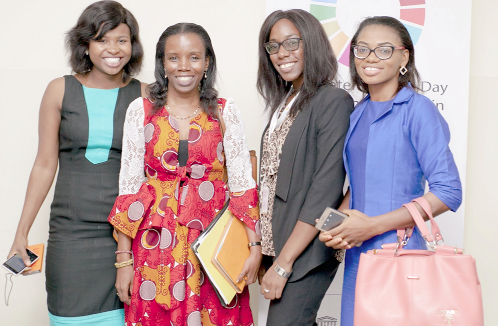
Report highlights challenges facing women, girls in science
International Perspective for Policy and Governance (IPPG), an independent and non-profit think tank, has released a report on the challenges faced by women and girls in the study of Science, Technology, Engineering and Mathematics (STEM) subjects in Ghana.
The report is the final documentation of the deliberations from a roundtable discussion held on the theme “Gender, Science and Sustainable Development: The way forward,” which started in February to mark the 2017 International Day of Women and Girls in Science.
The roundtable discussion was organised by Diplomatic Call Ghana, the media and advocacy arm of the International Perspective for Policy and Governance, and was moderated by Dr Elsie Effah Kaufmann, a lecturer at the University of Ghana and quiz mistress for the National Science and Maths quiz.
The discussion brought together representatives from the Gender and Education Ministries, United Nations Educational Scientific and Cultural Organisation (UNESCO), United Nations Population Fund (UNFPA), members of the Young Diplomats of Ghana and female science students from tertiary institutions in the country.
The report
The report threw more light on challenges faced by female students in STEM fields and further outlined a series of actions to be taken to engage and ensure more girls and women are continuously involved in science-related fields and careers.
Some of the challenges that were highlighted in the report were stereotypes that medicine was the absolute career choice in studying science, lack of knowledge of job prospects and a lack of continuity for women in STEM fields.
The rest were lack of role models, employment preference which favours men and gender stereotype among others.
Solutions
The solutions proposed by participants in the roundtable discussion to help curb the menace included mentorship programmes, science career fairs for female students and their parents, collaborations between government and the private sector to absorb female graduates into the job market, capacity building workshop for teachers, civil society advocacy and other stakeholder involvement to tackle the issue.
According to the leadership of the IPPG, they were ready to take up the mantle to engage all stakeholders and get them on board to promote STEM education, especially amongst female students in Ghana.
The group also resolved to use research, government and private sector engagements, as well as events and seminars to make a positive impact in empowering women to excel in the field.
That, they believed, would ensure gender equality and the empowerment of women and girls in science.
IPPG
IPPG is an independent and a non-profit think tank devoted to the implementation of sound policies and the strengthening of the practice of good governance for the sustainable development of Ghana and the African continent.
